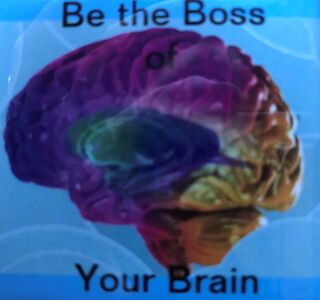Anxiety
Stop Wasting Your Life-Minutes Worrying
How to break free from the worry loop and return to the now.
Posted June 17, 2022 Reviewed by Ekua Hagan
Key points
- Anxiety-chatter steals valuable life-minutes by taking one out of the present moment.
- Worry is the rehearsal of anxiety-chatter which strengthens each time one allows it.
- Thinking about past experiences brings the attached emotion into the present moment, thereby corroding one's experience of the now.
- Worrying about the uncertainties of the future is illogical, unnecessary, and of little (if any) use in problem-solving.
We wouldn’t think of taking a $100-dollar bill and lighting a match to it, yet we so often carelessly spend our valuable life-minutes as if there were an endless supply.
We waste our life-minutes on obligations that we have no interest in, and on circumstances and relationships that no longer bring us joy simply because it is comfortable to do so. And, as it would be uncomfortable to make a change, we continue to remain on autopilot not fully being present.
Autopilot is dangerous, as it is the number one thief of life-minutes, and once our valuable life-minutes are wasted they circle the drain, never to return again.

The Two Biggest Ways We Waste Our Valuable Life-Minutes
One big way we waste our life-minutes is by residing in guilt and regret from the past. When we do so, we pull emotion from a past experience into the now, which corrodes the present moment like battery acid. We allow these old thoughts to uncover old feelings, and then bang, we are right back in that place again reliving the whole awful experience as if it were really happening, and to the brain, it is.
The brain loves patterns and each and every time we pull a memory of a past experience off the dusty bookshelves of our long-term memory attic, it is first altered and then strengthened. This makes it easier to find the next time and harder to resist the temptation to do the search. By allowing these unpleasant thoughts of guilt, regret, and the endless loop of woulda, coulda, shouldas into our consciousness, we reinforce the rumination process, making it stronger each time we do so.
The other big way that we allow our life-minutes to go down the rabbit hole is by pulling the future into the present with worry. To worry is to rehearse being anxious, which makes no logical sense. Though anxiety can also be more complicated as it can involve levels of neurotransmitters (such as serotonin) being out of whack, there is also a large component of choice and effort involved with achieving a calm mind. Professional treatment and sometimes medication can help tremendously, though sliding into the driver’s seat is essential when it comes to improving our own mental health and well-being.
Become the Boss of Your Brain

Basically, there are only two choices when it comes down to it: Either we control our thoughts or our thoughts control us. That’s it. Thoughts come first and feelings second, therefore if we allow anxious thoughts to circle around in our minds, we will then feel anxious. The more we allow this, the stronger the worry loop and the more we become prisoners to our own negative self-talk.
Learning to become the boss of your brain is the key to happiness and living your best life.
10 Ways to Manage Anxiety-Chatter and Save Your Life-Minutes
- Realize and acknowledge that you are the captain of your own ship, and only you can steer your life in the direction you would like it to go.
- Understand that anxiety-chatter is irrational the vast majority of the time. Challenge these thoughts by fact-checking.
- Make a list of the controllable versus the uncontrollable. Right away, throw away the list of uncontrollables and then let go of that list. It is a gigantic waste of life-minutes to give it any thought whatsoever. Then, go through each of the controllables and come up with a plan and a realistic timeline. Then, let this go, too.
- Remember the mantra, “As I think, so shall I be.” The thoughts we allow in dictate how we feel. When you change your thoughts, you change your life. It’s really that simple.
- Be aware of avoidance behavior and work hard to reduce this the best you can. (For example, avoiding a situation because you feel anxious, such as class, work, or a person). As they say, the only way out is through. Each time you cave in to this, it strengthens the behavior and makes it even stronger. This may not be easy at first, though it will become easier with commitment and practice.
- Understand that anxiety is a brain thing and therefore it is not your fault.
- That said, remember that happiness is still a choice. Though you may have something extra to deal with such as anxiety, depression, ADHD, or whatever, it is still up to you. This means that it may take more effort to keep up in the race, but you can do it. Stand tall, shoulders back, and keep your eye on the prize.
- When the worry-loop starts, talk back to it with, “It’s not me; It’s OCT (obsessive-compulsive thinking).” This will remind you that you are not your anxiety. It is separate from the person you are.
- Realize that the brain can absolutely be re-wired to think and do what you would like, much like a sea lion is trained to do tricks at Sea World. It takes commitment, lots of consistent practice, and applause. Throw yourself a fish when you have a small success.
- Set the bar at “Do Your Best,” and be kind and patient with yourself as you learn to become the boss of your brain. If you fall, get back up and dust yourself off. Stay with it.

There was a speaker at my youngest brother-in-law’s graduation years ago that has stuck with me ever since. He was a professor at this New York college who had several extra things to deal with along his own journey, one of these being dyslexia and another anxiety.
He spoke of his challenges with earning a Ph.D. and arriving at his success. He compared this to a high school or college track meet. He then asked us to picture all of the different teams lined up behind the white lines waiting for the gun to go off to start the race. He said to look around at all of the different colored uniforms, heights, and body types of the runners. Some runners would quickly be out front in the race, there would be a pack in the middle, and then some trailing behind as they were in it for social reasons or just to keep in shape.
Then, he said, picture a few of these runners with a 10-pound weight belt underneath their uniforms that no one else can see. They are running the race with everyone else but no one knows how much harder it is to keep up and stay in the race.
This stuck with me as I thought it was a fantastic metaphor for life, and for those of us who have something extra to deal with. We may have to be more committed and work harder than other people to achieve a calm mind, inner peace, and happiness, but it is still up to us. The choice to be happy is ours and it begins with learning to become the boss of our brain.
As we think, so shall we be.
To find a therapist, please visit the Psychology Today Therapy Directory.


